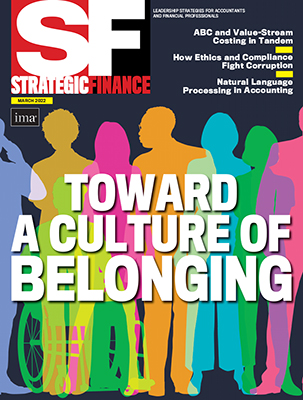Certified B Corporations (B Corps) are for-profit companies that have met a set of established standards for environmental, social, and governance (ESG) performance; accountability in terms of profit and purpose; and transparency regarding operations, offering, and policies such as sourcing, ingredients, and labor practices. They aim to bridge the gap between not-for-profit organizations and regular corporations by requiring leaders to act in the interest of all stakeholders, including customers, employees, vendors, and the local community. To that end, B Corps set missions that are broader in scope than those strictly associated with product, service, and profitability. These companies are responding to the global trend of consumers and investors vetting businesses’ impact (and spending accordingly) and aligning with that drive to influence positive change within specific industries.
The goal of B Corps is “to create a product or provide a service, make a profit, and positively contribute to society,” says Benjamin Wann, associate director/plant controller at Iovance Biotherapeutics and author of Your Career in Management Accounting: Getting Hired, Promoted and Achieving Success! “Done right, everyone wins.”
To achieve B Corp certification, companies must apply to the nonprofit network B Lab, which updates the B Impact Assessment every three years. This allows companies to set improvement goals against the most up-to-date standards and to benchmark their performance.
For certification, businesses are graded on contributing to an inclusive, sustainable economy by how completely they abide by a set of principles. For example, Oregon-based cheese manufacturer Rogue Creamery is a certified B Corp whose customers pay a premium for its products because they appreciate the company’s values and support its mission, as do its employees. Wann notes that Rogue Creamery has won awards and expanded its distribution globally by developing unique products, an attractive culture, and a winning long-term business model despite—or because of—the constraints of the B Corp structure demanding adherence to the principle of sustainability and ESG standards.
Wann says, “B Corps aim to create an economy comprised of a new type of corporation, where purpose is front and center—by doing so, the company can benefit all stakeholders, not just shareholders.”
VALUE-BASED GOALS
The values and aspirations of ethical leaders are embedded in the B Corp declaration of interdependence, which includes the following principles:
- We must embody the change we seek in the world and put our values and ethical principles into practice.
- Business ought to be conducted sustainably as if all people are essential—not just senior executives and shareholders—and that protecting the environment matters.
- Businesses should aspire to do no harm and benefit all, including future generations, through their products, practices, and profits.
B Corps are led by ethical leaders who aspire to do business as a force for good, with goals shaped by a pursuit of profit and purpose. Common goals include reducing inequality and poverty as well as creating a healthier environment, stronger communities, and more high-quality jobs.
Wann says, “B Corps lead the trend in corporate governance, especially the growth in ‘triple-bottom-line’ balancing profit, people, and the planet to prove that organizations can profit sustainably.”
B Corps leaders realize that while the bottom line remains essential, their business also must deliver value to the broader group of stakeholders and take responsibility for the negative impacts it creates.
B Corps’ goals include supporting the people who contribute to their success and protecting the environment for future generations. B Corps communicate their uniqueness, essential to competing against companies with fewer stakeholder-focused policies and practices. A 2019 Hotwire survey found 47% of respondents stopped purchasing from a brand because it went against their values.
“For too long, we’ve measured business success around short-term financial gain with little consideration toward how this impacts citizens,” Wann says. “Recently, there’s been an increasing demand for leaders who challenge traditional thinking to redefine what it means to be successful.
“B Corps answer that call by leading a movement promoting sustainability through multifaceted enterprises that promote social benefit while still making money,” he says.
B Corps’ best practices include training their workforce in ethics and a code of conduct, investing in ethics helplines and whistleblower hotlines, and listening to all employee and customer concerns. By learning, improving, and building trust through ethical behavior, organizations are less likely to endure expensive lawsuits or other legal or regulatory troubles, Wann says.
FP&A AND REPORTING
Most B Corps build their planning and reporting structures around a longer perspective. Financial planning and analysis (FP&A) teams must understand the long-term strategy and potential payoff across a three-, five- or eight-year timeline. Metrics and goals must be reported to customers, employees, vendors, and the community. In addition, leaders must educate their teams on what is and isn’t acceptable.
“FP&A teams need to ensure they stick to accounting ethics and don’t play financial shenanigans with the balance sheet to ensure short-term profit targets are met,” Wann says. “When explaining variances analysis, teams must emphasize reporting not just on financial metrics but with a balanced scorecard approach.”
Finance professionals can explore the benefits and potential drawbacks of becoming a B Corp, which include the time, money, and resources needed to assess the requirements and make changes to the business’s budget, policies, and controls. They can also research direct competitors and companies in other sectors that have reached this status and explore how B Corps’ values and mission may contribute to a competitive advantage.
“Customers and employees are searching for meaning in their personal and professional lives and want to work for and support organizations that appeal to their values,” Wann says. “Doing so has proven to be profitable.”

March 2022

